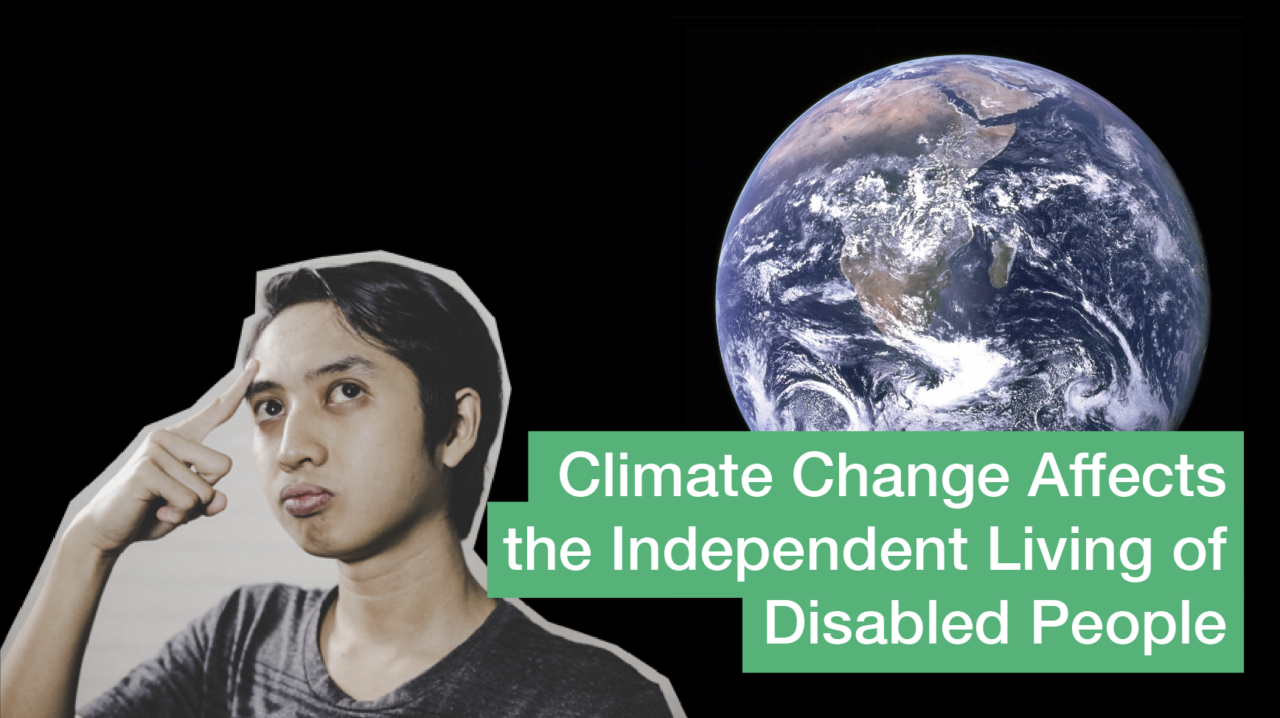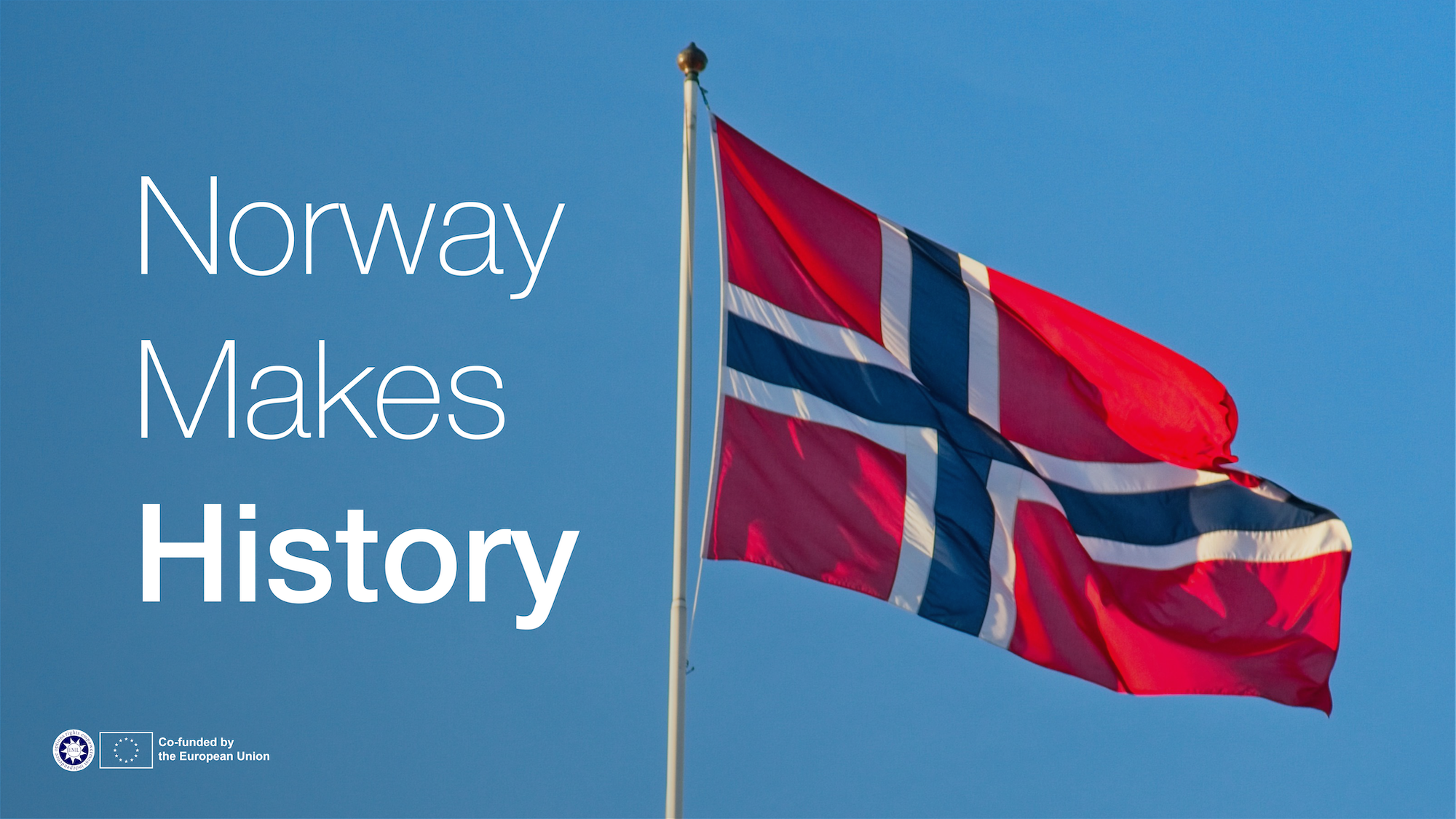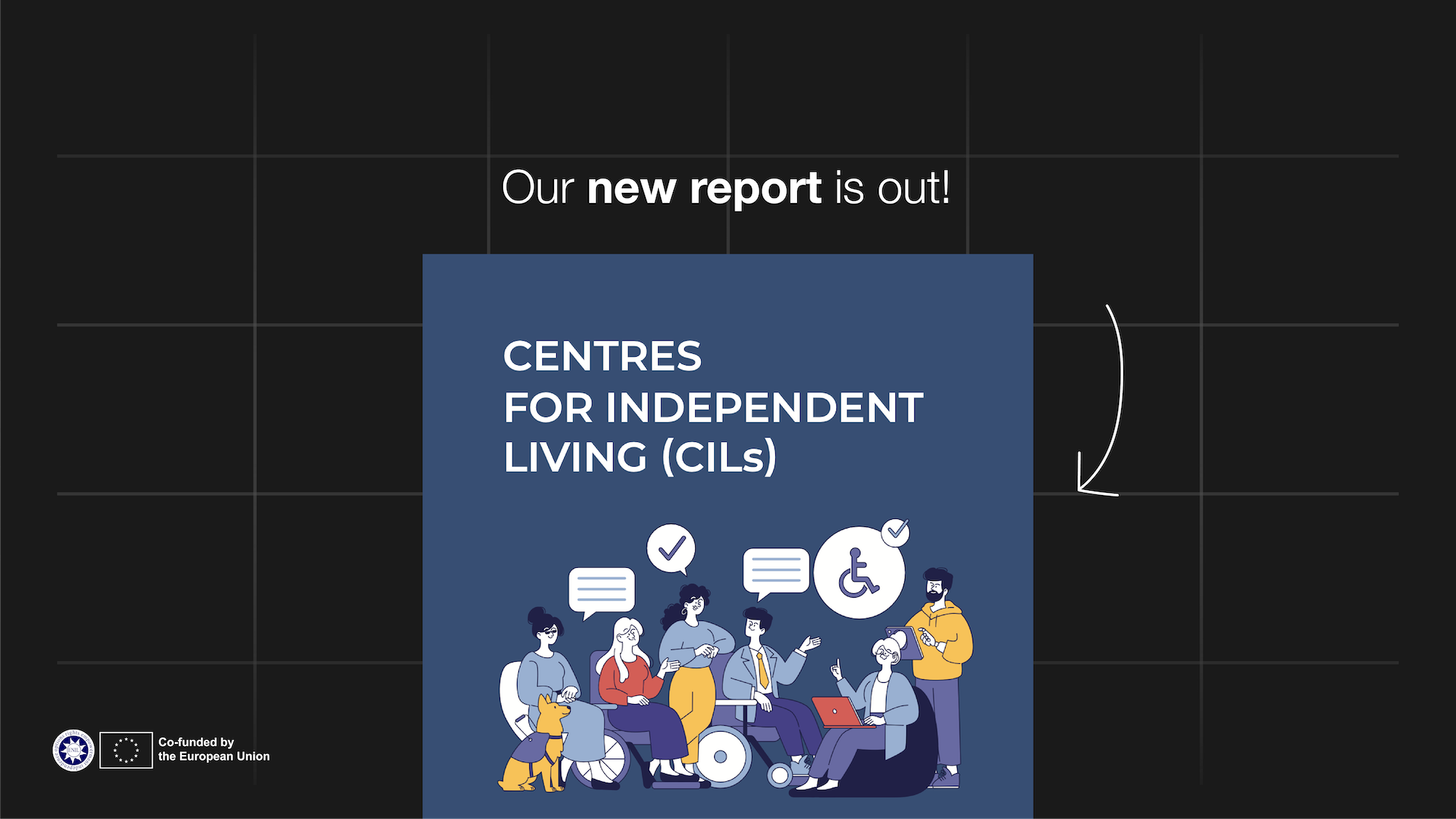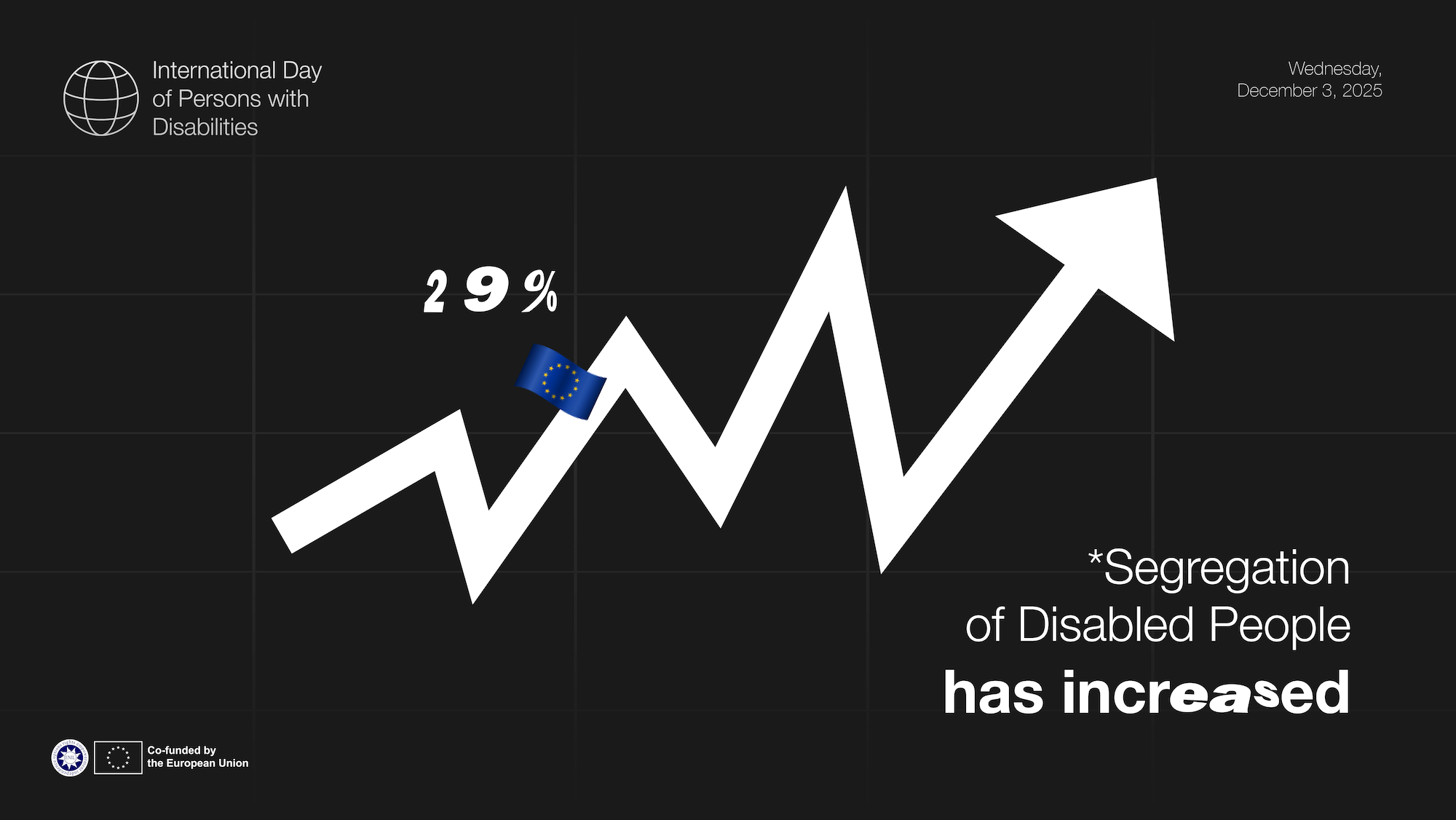It is true that climate change is real and it is probably the biggest problem we have as humanity right now. It is also true that at ENIL (and at many other organisations in Europe) we were not working much on climate issues and how they affect disabled people. We are a small team, with a specific capacity, and we had to prioritise things. In a continent where our brothers and sisters are denied their human rights and institutions are mushrooming, the green agenda had to wait.
However, after seeing their effects on independent living more and more (think for example the ban of specific objects that were important for our independence -like plastic straws- without having appropriate alternatives, or making areas in the cities exclusively pedestrian without considering how we will move around, or making institutions eco-friendly and promoting them as sustainable solutions, or people in institutions being left behind to die when a natural disaster occurs etc), and after getting feedback from our members, we decided to put climate issues on our work plan, high in the agenda, and examine a bit more the role of climate crisis in our lives. Because it is affecting them, more than we realise, and if we don’t recognise it and if we don’t act, both as a society and as independent living movement, we will have a big problem. Bigger than we already have.
Having said that, we are trying to follow the developments around the EU green agenda, with a particular attention to the European Green Deal, as well as the international framework, from the 2030 Agenda and the Sustainable Development Goals to the COPs each year. Apart from the obvious reason which says that we all should be informed and active on climate topics, because “there is no planet b” as climate activists say, we are trying also to understand and research how all this discussion on climate is relevant to disabled people and how it is affecting our independent living.
The last two months were particularly active in this field, as we had the opportunity to attend and be involved in numerous relevant events, especially through Kamil Goungor, our Policy and Movement Support Officer (and in charge of the green agenda at ENIL) and Nadia Hadad, ENIL’s co-Chair, who also through her role in the Board and Executive Committee of the European Disability Forum works a lot on issues related to the climate change and how it is connected to disabled people.
With regard to sustainability, on 15th September, Kamil was invited by the University of Kassel to participate at the first conference of the Kassel Institute for Sustainability, titled “Challenges of Sustainability Research”. Kamil spoke at the panel called “Sustain/Dis-/Ability” and addressed the connection between the SDGs process and the disability policies and people’s reality. On 13th October, Kamil was invited to speak at the “Inclusive cities by reshaping urban mobility” hybrid workshop organised by the Greens in the Committee of the Regions in the framework of the European Regions Week 2022. Kamil presented the TRIPS Project and spoke about how mobility can contribute to create an inclusive and sustainable city, the role of co-design, and finally shared some good and bad examples, highlighting that sustainable doesn’t mean always inclusive. It is also worth noting that in the past both Nadia and Kamil have participated in the High Level Political Forum on Sustainable Development at the UN headquarters in New York, as members of the constituency of disabled people.
When it comes to the climate effects on our lives, on 19th October, Nadia and Kamil participated at the hybrid public hearing on “Climate justice: how it is affecting people with disabilities in Europe and in the world” organised by the European Economic and Social Committee. Nadia shared the views of disabled people in Europe and how the EU policies can play a role, pointing out the importance of our involvement, while Kamil represented the voice of young disabled people and said that they are often left out of the climate discussion while they should be on the forefront of it. Finally, on 21st October, Kamil had the opportunity to take part in the “Roadmap Action-oriented Dialogue: Inclusive and Collaborative Systems for Heat and Wildfire Risks Governance” organised by the Government of Greece with the support of the European Forum for Disaster Risk Reduction Secretariat (UNDRR Office for Europe and Central Asia, European Commission and Council of Europe) and UNDRR Office for Arab States. Kamil was one of the rapporteurs of the morning sessions, addressing the ministers of the region and empasising the importance of inclusion of disabled people and other oppressed groups in all phases of disaster risk management, while calling also for the use of more empowering language.
As we can see, a diverse range of topics around climate change, sustainability and how these are relevant for disabled people. Of course this is not enough and there is a need to dive even deeper and understand better the situation, in order to be able to propose concrete actions and solutions. In this direction, ENIL has already committed to work on a publication on climate change and independent living. This will be published in 2023 and we will consult members and allies to identify the challenges, possible solutions and to share personal stories. If you would like to be involved or contribute in any way, please contact Kamil at: kamil.goungor@enil.eu



